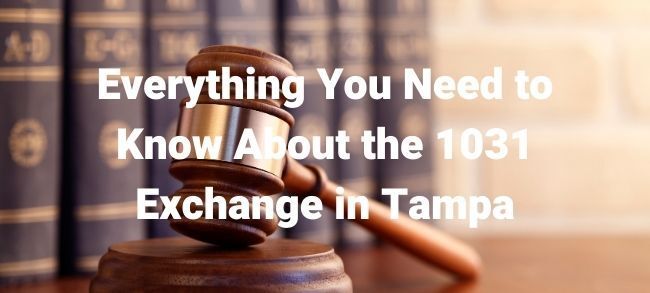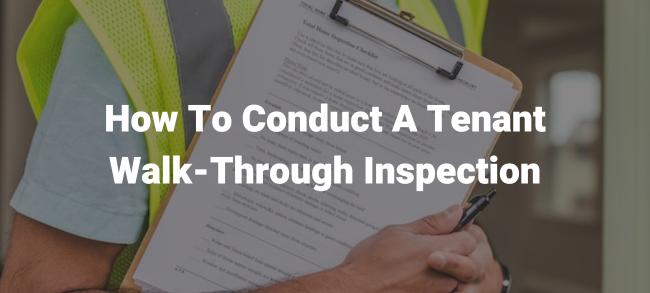Everything You Need to Know About the 1031 Exchange in Tampa

Are you planning to sell your
investment property in Tampa ?
If you have done your research right, you must have considered the various Florida state and federal capital gains taxes. Combined, those taxes could rack up to 15% to 30% depending on the nature of your Florida property.
There is a method of temporarily and legally avoiding capital gains taxes on your investment property in Florida. Instituted by Section 1031 of the Internal Revenue Code , a 1031 exchange allows you to sell off your Florida investment property and purchase another of a similar class. Section 1031 has a number of conditions and pre-requisites that must be followed for you to benefit from a tax deferral.
When used correctly, a 1031 exchange has the promise of offering real estate investors a breather when it comes to taxes. As stated earlier, there are quite a number of provisions stated in Section 1031. It is recommended that you rely on an experienced real estate provider who can advise you accordingly.
If your property is located in the Tampa area, the property company to approach is Advantage Realty. We at this company have over 30 years in the industry, helping Tampa, Florida investors maximize the returns and benefits of real estate. In the following post, we will guide you through the exchange and also recommend like-kind properties.
Eligible Properties
Not all properties qualify to be transferred via a 1031 exchange. Only properties held for trade, investment or business purposes meet the threshold.
A primary residence and personal property therefore doesn’t qualify. Another class of property that is prohibited is a fix and flip property. Vacation or second homes, however, might qualify to be sold through the 1031 exchange.
We recommend that you consult a tax expert. Section 280A of the Tax Code offers a usage test that concerns such properties, especially if the vacation or second home is leased out.
An Exchange, Not a Sale
The term sale in a 1031 exchange must be used very lightly. After all, its principal purpose is to facilitate an exchange. For the transaction to be valid, both properties must be held for investment purposes.
Section 1031 of the Internal Revenue Code has been operative since 1921. The provisions of the statute back then gave real estate owners a lot of leeway. Tax Reforms in 1984 brought forth some amendments in interpretation and in the inclusion of a time frame.
In the current disposition, the meaning of ‘like-kind’ properties has been broadened. Tampa real estate investors can now swap a shopping center for vacant land, a farm for an office, and an industrial building for an apartment building or raw land. This allows for some unique exchanges to be made.
A Qualified Intermediary & Time Frames
Prior to 1984, the exchange of business or investment properties was to be done simultaneously. The relinquished property was transferred, and the replacement purchased. This was to avoid any clever dealings by the seller, but it was not foolproof. You can imagine the difficulties, especially when it came to the transfer of funds and titles.
The current 1031 exchange setup allows for a delayed exchange and the inclusion of a third party known as a Qualified Intermediary (QI). The seller will market the property as usual. Once a buyer is identified and the purchase goes through, the QI steps in. The qualified intermediary will receive the money due from the sale of the property.
Here is where the first deadline begins. The seller must identify in writing or narrow down on a potential property (or up to three properties) within 45 calendar days of the closing of the relinquished one. This timeline is non-negotiable. Failure to submit a proposal within the time limit means that the Florida 1031 exchange will be disqualified.
Another element to consider is the value of the replacement property. You must ensure that its fair market value does not surmount 200% of the relinquished property’s value from the transaction date.
The other important time frame comes after selection of the three potential replacement properties. A 180-day period is allowed for the transfer of the replacement property to the investor. However, if the tax return for that year precedes, this will be the new deadline.
Purchasing of the Replacement Property
The Qualified Intermediary (QI) is the one who holds the proceeds of the sale of the property in Florida. The QI will also be instrumental in the purchase since the law stipulates that the buyer should not have any dealings with the proceeds.
Once one has identified potential replacement properties in Florida, the QI will acquire it from the seller and later on, transfer the property to the investor. The transaction will then be complete.
The Boot
“Boot” is one of the technical terms in a 1031 exchange. It refers to non-like kind property that is received by the investor during the 1031 exchange. This could be in the form of cash, reduction in mortgage owed or use of sale proceeds for invalid closing costs. Any boot that is received by investors is taxable and would defeat the purposes of the 1031 exchange. Investors are therefore advised to consider the following:
- Always trade across or up. Without exception, trading down will result in receiving a boot in either cash or mortgage reduction.
- During the close, always carry cash to cover certain transaction costs.
- Limit the amount of money needed to close on the replacement property.
For All Your Property Needs
A typical 1031 exchange requires extensive research in the market. You will need to complete thorough due-diligence in the selection of property that can match up your relinquished Florida property. There are also a number of conditions that must be met. Otherwise, the 1031 exchange could be nullified.
To ensure the Florida 1031 exchange of your Tampa property remains tax-free, you can call us at Advantage Realty. Our experience and expertise can make the difference between a 15% tax payment and a tax-free exchange.











